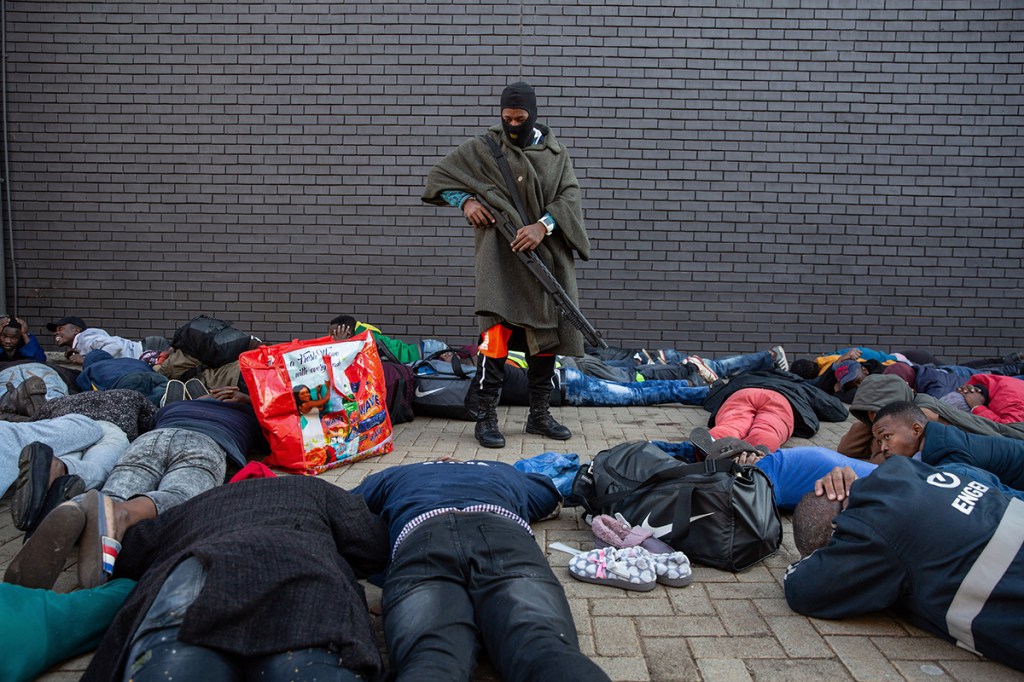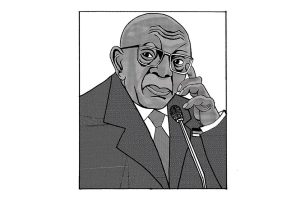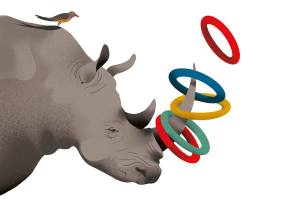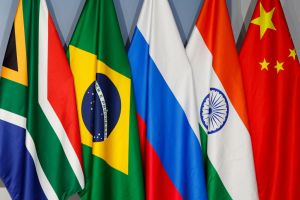South Africa is ablaze once more. In the provinces of KwaZulu-Natal (formerly Natal) and Gauteng (which includes Johannesburg and Pretoria), the cities are burning. Shops and businesses have been turned to ashes; trucks are on fire; mobs of excited young men are smashing and looting; a Durban ambulance, trying to take a critically ill patient to hospital, was attacked; in the middle of a crippling COVID-19 lockdown, pharmacies have been plundered and vaccination sites have been suspended; motorways have been closed; over 70 people have been killed. The South African president, Cyril Ramaphosa, has called out the army.
These rioting young men lead wretched lives, mainly because of the ANC government, which has ruled South Africa for 27 years. One politician in particular, Jacob Zuma, South African president from 2009 to 2018, has done more than anybody else to ruin their lives. He is the nominal cause of the rioting. Are they rioting against him? No, they’re rioting for him.
You would be surprised if you met Jacob Zuma. As you approached him, either as president of South Africa or as a prisoner, he would greet you gracefully. He would be honored to meet you. He would listen humbly. He would charm you. Helen Zille, the tough former leader of the liberal opposition party, admits she was completely disarmed by him.
The ANC came to power on April 27, 1994, with Nelson Mandela as the president of South Africa. Its route to power has been labeled the ‘People’s War’, where it waged a war of terror in the black townships to crush other black parties. It fought not to end apartheid but to stop anybody else ending apartheid. It sought power not freedom. It was successful. Upon achieving power, the ANC followed the same path of corrupt self-enrichment as other parties coming to power in post-colonial Africa. ‘Our turn to eat’. It felt this its natural right, indeed the reason for its existence.
Mandela was an anomaly in the ANC, heroic and gracious (although an ineffectual president). The rest of the ANC was different. One of them, Jacob Zuma, was an unschooled Zulu from Natal. He had been imprisoned by apartheid on Robben Island. After liberation, he worked to reconcile warring factions in Natal, where his charm was effective. He acquired senior positions under Mandela’s administration. There was a suspicious arms deal, where South Africa acquired warships and fighter aircraft from British and European contractors at enormous prices. Zuma was heavily implicated in the possible corruption of the deal.
The ANC government followed the usual African trend: a huge cabinet and a massive civil service, both overpaid and incompetent; miles of red tape to strangle business; restrictive labour laws making it difficult to fire and therefore dangerous to hire; a minimum wage to shut poor people out of the economy; and a plethora of race laws, requiring racial quotas and appointments to be made by race rather than merit. On top of this was endemic corruption. The inevitable result was economic decline and crippling unemployment, now at 43 percent (including those who have given up looking for work). The efficient infrastructure left by apartheid, including electricity supply, has been ruined.
In 1999, Thabo Mbeki became president. He appointed Zuma as deputy. Mbeki was haughty and neurotic. He denied HIV caused Aids, contributing to a health crisis that killed 300,000 black people. His aloofness antagonized the ANC. They turned to his easy, open, charming deputy. They deposed Mbeki and replaced him with Zuma. After complicated and unsavory scheming, Zuma became president in 2009.
Zuma took ANC corruption scandals to new heights. Yet he had some endearing qualities. Unlike most African politicians, he was proud of being African. He had many wives and a multitude of children. He wore leopard skins and danced in front of crowds, his big bare belly bouncing up and down. And all the time he was handing over big chunks of the South African economy to the extraordinary Gupta brothers. According to the British Foreign Office, the brothers were ‘at the heart of a long-running process of corruption in South Africa’. This became known as ‘state capture’.
Zuma, who along with the Gupta brothers denies any wrongdoing, fell in 2018. He was replaced by Cyril Ramaphosa, a rich, clever, measured man with a reputation for negotiation. He has been trying to manage the ferocious conflicts within the ANC, most of them about Zuma. The former president meanwhile claims he is the victim of a political conspiracy.
A ray of light is the ‘Zondo Commission’, a judicial commission to investigate corruption in South Africa. It is led by a judge of high integrity. The Commission has exposed corruption on an almost unbelievable scale, implicating ANC ministers. Zuma, suspected of being the most corrupt of all, was called repeatedly to appear before it. He refused. This is contempt of court, a serious crime. Eventually South Africa’s highest court ordered Zuma be arrested and imprisoned. The nation held its breath. The rioting began. But Zuma was put in prison. The rioting got worse.
Compare the young men rioting now with those rioting under apartheid in the 1980s. Then, they ran amok mainly in the townships; now they are doing it in the city centers. Otherwise, they look similar, young people seeking meaning and excitement in bleak circumstances, enjoying the violence, as young men are apt to do. They are rioting for Zuma, but maybe the 43 percent unemployment is a more important reason. They could easily be rioting against Zuma.
This article was originally published on The Spectator’s UK website.


















